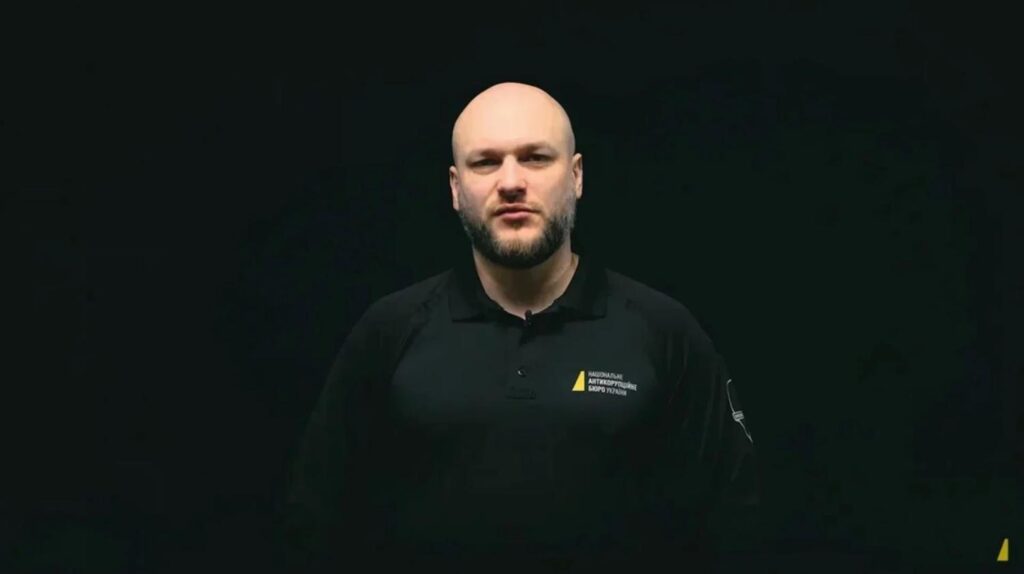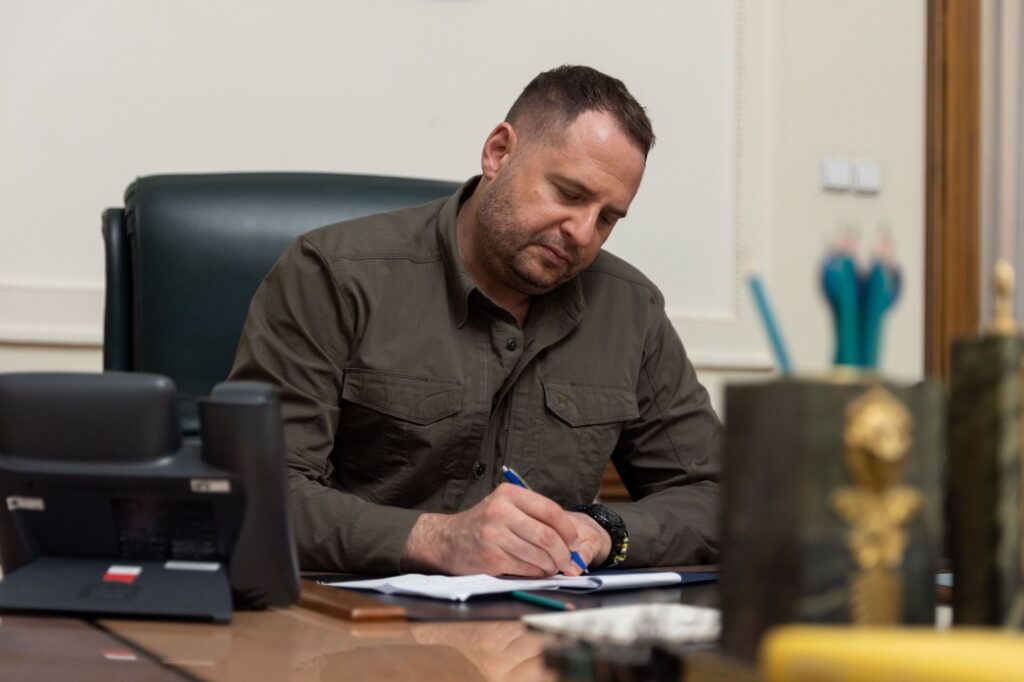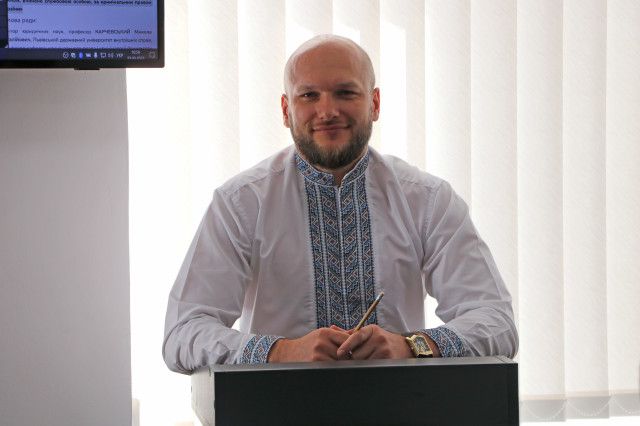Ukraine caves under $ 2.3 bn threat, appoints investigator it desperately wanted to block

Ukraine’s Cabinet has finally appointed the anti-corruption detective Oleksandr Tsyvinskyi as director of the Bureau of Economic Security (BEB), ending weeks of deadlock that drew international criticism and jeopardized IMF funding.
Tsyvinskyi won the official selection process earlier in July, receiving unanimous support from the commission. Yet the appointment stalled amid unsubstantiated security concerns — a delay that risked derailing up to $2.3 billion financial aid.
Under Ukrainian law, the Cabinet had ten working days to formalize the appointment.
Politicians chose obstruction instead.
Tsyvinskyi finally got his job today after a month-long political standoff exposed how Ukraine’s reform process works behind closed doors. The appointment came only after mounting pressure from Western donors who clarified that continued delays could jeopardize billions in aid.
Ukraine’s $15.6 billion IMF loan program included a 31 July deadline to name a new BEB director.
Missing that deadline by a week likely won’t affect the next aid tranche — the IMF routinely grants extensions for structural benchmarks — but the prolonged obstruction damaged Ukraine’s credibility with international partners.
What made them so nervous about a detective
Tsyvinskyi represents exactly what Western donors hoped to build in Ukraine. The PhD holder spent nearly a decade at Ukraine’s National Anti-Corruption Bureau, methodically building cases against untouchable figures like ex-MP Serhiy Pashynskyi, who was charged with embezzling millions in oil products.
In June, a six-member selection commission chose him unanimously, with the three international experts whose votes were decisive under Ukrainian law all supporting his candidacy. The transparent competition was designed specifically to prevent political interference.
A watchdog too effective
The Bureau of Economic Security threatens powerful interests by design. Created in 2021 to replace Ukraine’s corrupt tax police, it investigates economic crimes that intersect with business networks and political patronage.
For example, in 2023, BEB detectives uncovered fuel-smuggling networks worth $29 million and counterfeit tobacco operations that cost the state $38 million.
These are precisely the cases that make politicians with business ties uncomfortable.
Officials initially leaked concerns about Tsyvinskyi’s father, a Russian citizen living in Russia. The Security Service of Ukraine demolished this excuse, with Ukrainian online newspaper Babel reporting that the SBU confirmed no legal reasons existed to block his appointment.
The double standard was obvious. Russian-born General Oleksandr Syrskyi, Ukraine’s commander-in-chief, has close relatives in Russia — yet it’s never been an issue. Tsyvinskyi, meanwhile, told reporters he hadn’t spoken to his father in over a decade.
The power play behind the scenes

The delay wasn’t random bureaucracy. It came amid broader tensions over control of anti-corruption institutions, with Andriy Yermak, head of the Office of the President (pictured), steadily expanding his influence over personnel policy. Prime Minister Yuliia Svyrydenko, his close ally, chairs the Cabinet, which refused to sign Tsyvinskyi’s appointment within the legal deadline.
The timing was suspicious. Around the same time, the government tried — and failed — to place the National Anti-Corruption Bureau (NABU) and Specialised Anti-Corruption Prosecutor’s Office under tighter executive control. That rollback also came only after intense international pressure.
By mid-July, Ukrainian business groups warned that Tsyvinskyi’s limbo status could disrupt the agency’s reforms and create problems with international partners. Civil society groups called it a procedural violation.
Tsyvinskyi abandoned his reserved professional stance and went public, accusing officials of using “manipulative” tactics to sabotage his candidacy.

When $2.3 billion talks, politicians listen
While Ukraine’s Cabinet dodged questions, pressure from international donors ultimately forced the appointment.
The International Monetary Fund and European Commission had backed the competitive selection process as a core pillar of Ukraine’s anti-corruption reforms. With billions in aid flowing through government systems, donor trust became a concrete factor in political calculations.
Ukraine’s IMF deal includes $2.3 billion in aid this year — but only if Kyiv meets its structural reform milestones.
According to the Kyiv Independent, Western donors viewed the delay as a test of Kyiv’s credibility, with direct implications for financial support. More than 60 civil society organizations and business groups issued open letters demanding Tsyvinskyi’s appointment.
“The reform of the BEB is vital for Ukraine’s business climate, investment prospects, and progress toward Euro-Atlantic integration,” the G7 said in a public statement.
The message was clear by late July: continued obstruction could jeopardize that support. The government began signaling that Tsyvinskyi might be appointed in early August, after he agreed to take a polygraph test.
Tsyvinskyi passed the test on 5 August. Of course, he did — the whole exercise was face-saving theater. The mounting pressure had worked.
The pattern: blocking qualified candidates
The Tsyvinskyi case wasn’t isolated. Oleksandr Danyliuk, a respected former Finance Minister, applied to head the Bureau of Economic Security in 2021 but was disqualified on technical grounds — officials said he couldn’t provide a diploma in the right specialty.
The irony was stark: a former minister with extensive economic expertise was blocked from leading a financial crimes agency over paperwork.
These cases reveal a pattern. When qualified candidates can’t be trusted to follow informal instructions, the system finds ways to exclude them — until international pressure becomes too strong to ignore.
What happens next
Tsyvinskyi’s appointment resolves the immediate crisis but raises more intricate questions. Will he be allowed to operate independently, or will the government try to constrain his work behind closed doors? Will the BEB’s long-delayed investigations finally start moving?
Much depends on whether Western stakeholders maintain pressure. The IMF’s next review mission looms, and Ukraine’s EU accession talks are underway. With $2.3 billion on the line, the question is whether Kyiv’s leadership truly accepts that institutional independence isn’t a bargaining chip.
The fight over his appointment showed how fragile these reforms remain. Even amid war, even with international oversight, even with transparent procedures, political interference can still derail the process.
For Tsyvinskyi, the job is no longer just about combating economic crime. It’s about whether merit can survive politics in Ukraine’s reform landscape — and whether a qualified investigator can investigate when powerful interests prefer he doesn’t.
The real test begins now.


